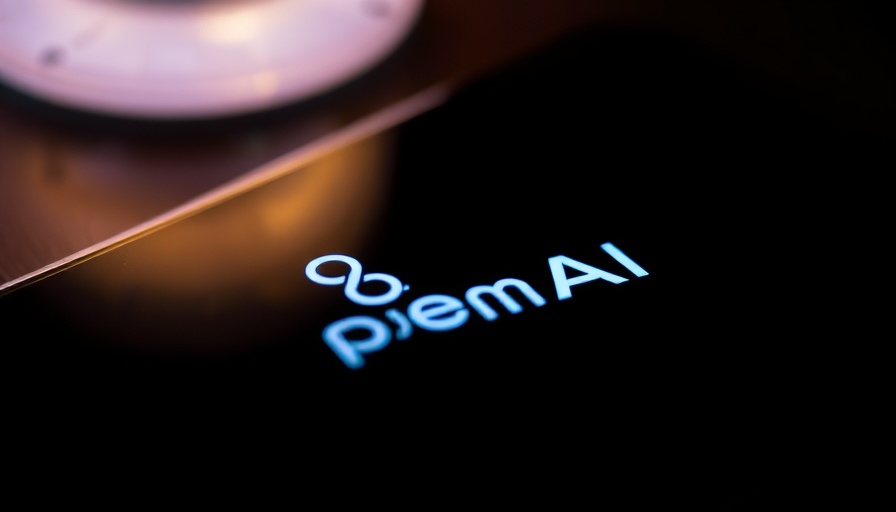
Judge's Ruling: A Landmark Moment in AI
In a pivotal decision, U.S. District Judge Yvonne Gonzalez Rogers has ruled against Elon Musk's bid to prevent OpenAI from transitioning into a for-profit entity. This ruling comes with significant implications for the future of artificial intelligence (AI) and its governance, as it highlights the ongoing tussle between innovation, responsibility, and corporate interests.
The Stakes of AI's Evolution
Musk, an initial supporter of OpenAI, argues that the organization has drifted from its foundational nonprofit mission, asserting that this shift undermines its original ethics and goals. He insists that the conversion to for-profit is not merely a minor alteration but a substantial deviation that threatens the altruistic principles OpenAI was founded upon. Musk's passion for the responsible development of AI echoes a broader concern shared by industry players—and indeed society at large—about the transformative power of AI in our lives.
A Broader Legal Battle Unfolds
The legal dispute has been intensifying over the past year, with Musk expanding his lawsuit to implicate Microsoft, which plays a crucial role in the funding and development of OpenAI’s projects. This move has raised eyebrows and concerns regarding market fairness and competition. By introducing his AI venture, xAI, as part of the legal proceedings, Musk is emphasizing what he views as an essential necessity for a competitive field in AI technology.
Public Interest at Risk: What’s at Stake?
Judge Rogers underscored the 'public interest at stake' in her ruling, suggesting that the implications of OpenAI’s transformation are significant. The choice between a nonprofit and a for-profit model could affect not only investment and technological advancements but also the ethical considerations surrounding AI development. The transition raises questions about accountability and oversight in a sector that is increasingly becoming influential across various facets of society.
Financial Moves: Musk's Unsolicited Offer
Adding another layer of complexity to the situation, Musk and a group of investors recently made an unsolicited bid of $97.4 billion to gain a controlling interest in OpenAI's nonprofit arm. Judge Rogers noted that this initiative undermines Musk's claims of 'irreparable harm', effectively complicating his legal arguments. The motivations behind this aggressive financial maneuver reflect a mix of competitive strategy and genuine concern for the ethical direction of AI development.
The Future of AI: Emerging Competition
As the courtroom drama continues, the larger question remains: how will the shift towards for-profit AI entities impact competition and innovation? As technologies evolve, response times to public concerns around AI ethics have become critical. Market dynamics may shift if more companies emulate OpenAI’s model, pushing traditional players to rethink their strategies.
Actionable Insights: What You Can Do
For those following the rapidly developing AI landscape, staying informed is paramount. Engage in discussions about the ethical ramifications and the trajectory of AI companies like OpenAI. Understanding the interrelated nature of technology, ethics, and business practices can empower consumers and stakeholders alike to advocate for responsible AI practices.
The Call to Action
As this case unfolds, AI enthusiasts should take an active role in discussing these developments. Join forums, subscribe to reliable news outlets, and encourage dialogue to shape the future of AI governance and ethics. Awareness and participation are keys to influencing the landscape of AI technology responsibly.
 Add Row
Add Row  Add
Add 




 Add Row
Add Row  Add
Add 

Write A Comment